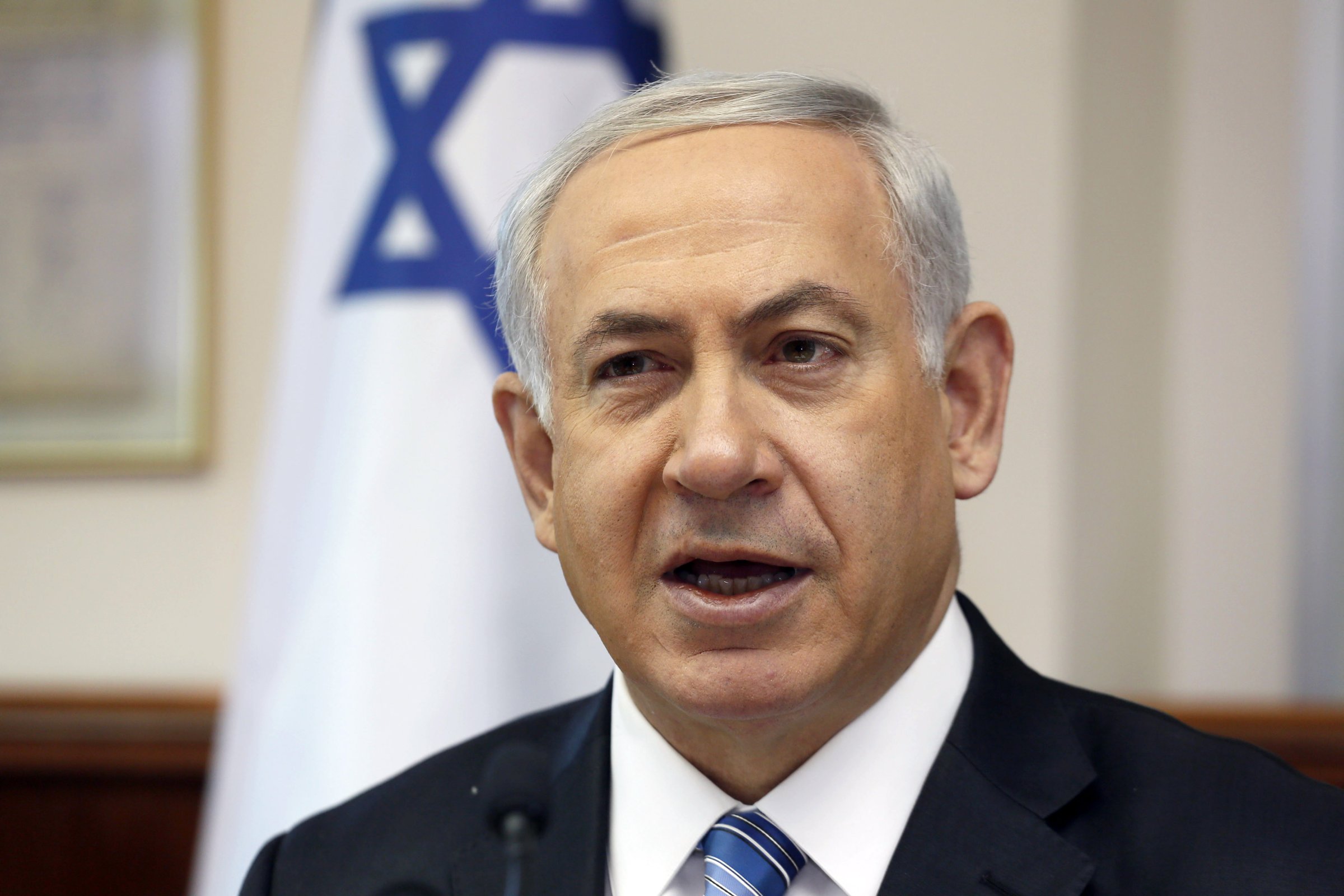
Israel’s decision to suspend peace talks with the Palestinians might appear to signal the end of negotiations between the two sides—but the move has only served to create yet more uncertainty about their future.
The announcement from Prime Minister Benjamin Netanyahu’s office on Thursday arrived as a thunderclap: after a five-hour meeting of the diplomatic-security cabinet, the vote to suspend the negotiations that have been championed by the U.S. Secretary of State John Kerry was unanimous. But analysts said they understood the suspension to be just that—a pause in the negotiations “until the make-up of the new Palestinian government and its policy become clear,” Barak Ravid wrote in Haaretz, the respected Israeli daily.
Netanyahu was incensed that Mahmoud Abbas, the moderate who heads both the Palestinian Authority and the secular Fatah party, had agreed to patch over a seven-year rift with Hamas, the militant Islamist group whose charter denies Israel’s right to exist. The reconciliation announced on Wednesday caught the Israeli government by surprise.
But does that mean the talks—which are set to expire on April 29—are over? “No, of course not,” says Efraim Inbar, the conservative head of the Begin-Sadat Center for Strategic Studies, a think tank at Bar-Ilan University in Ramat Gan, outside Tel Aviv. “We’ll see what happens with Hamas.”
Kerry had to coax both sides into participating in the talks, which began in July, and neither has reported substantial progress. When U.S. efforts to extend them through the end of the year failed three weeks ago, Kerry said the Obama administration would re-assess its investment in the effort.
Still, both Netanyahu and Abbas have indicated they want to continue talking, and as a practical matter, Palestinian unity might even improve the prospects of a deal. The European Union welcomed the pact nominally ending the factional rift, which had divided the Palestinian public both politically and territorially, with Hamas governing the Gaza Strip, where 1.7 million Palestinians reside, while Fatah held sway on the West Bank, home to another 2.5 million.
A senior Fatah official on Thursday said the unity pact with Hamas was made with the understanding that the group would support the peace talks, regardless of what its charter says. “We wouldn’t have been prepared—or able—to sign a reconciliation agreement without it being clear to all the Palestinian factions that we are leading our nation to a two-states-for-two-nations solution,” former PA security chief Jabril Rajoub told Israel’s Army Radio. Rajoub tried to turn the tables on Netanyahu, pointing out that parties in his own governing coalition rejected the idea of a Palestinian state, yet talks proceeded anyway.
Inbar, who supports Netanyahu, says he understood the Israeli cabinet’s decision as a tactical move, calculated to push back at Abbas after the Palestinian leader took the initiative.
“It’s good for domestic politics,” Inbar says, of the Israeli cabinet vote. He adds that it could also stir the Obama administration to intercede on Israel’s behalf. “Maybe the Americans will wake up, I don’t know.”
For the time being, the Israelis have seized on the extremist reputation of Hamas as an opportunity to cast Abbas as the reckless party. After the reconciliation deal was announced, a post on Netanyahu’s Facebook page showed a photo of Osama bin Laden alongside an picture of Abbas shaking hands with a senior Hamas official who had publicly lamented the terror mastermind’s death. Below ran the caption: “This is President Abbas’ new partner.” What analysts call “the blame game” has played out in the background of the negotiations since their start, with each side quietly angling to avoid being seen as responsible for their assumed eventual collapse.
For most of that time, Israel appeared most vulnerable to the blame, largely because, as the talks proceeded nominally toward establishing a Palestinian state, Netanyahu steadily expanded the approximately 200 Jewish settlements on the West Bank territory where that state was expected to stand. Kerry appeared to seal that assumption earlier this month when he told a Senate committee that Israel’s approval of 700 more units in a settlement undermined U.S. efforts to extend the talks.
But as long as the fate of the talks remains unclear, so does the answer to the question of who might bear the blame for their end. For all the drama of Thursday’s cabinet vote, its announcement felt more incremental than final to many observers.
“It could be tactical leverage, or maybe something more substantial,” says Pnina Sharvit-Baruch, a former Israeli peace negotiator, now at the Institute for National Security Studies, a think tank at Tel Aviv University. “It could be a way to make sure that Hamas doesn’t gain too much influence inside whatever government emerges.”
More Must-Reads From TIME
- The 100 Most Influential People of 2024
- Coco Gauff Is Playing for Herself Now
- Scenes From Pro-Palestinian Encampments Across U.S. Universities
- 6 Compliments That Land Every Time
- If You're Dating Right Now , You're Brave: Column
- The AI That Could Heal a Divided Internet
- Fallout Is a Brilliant Model for the Future of Video Game Adaptations
- Want Weekly Recs on What to Watch, Read, and More? Sign Up for Worth Your Time
Contact us at letters@time.com